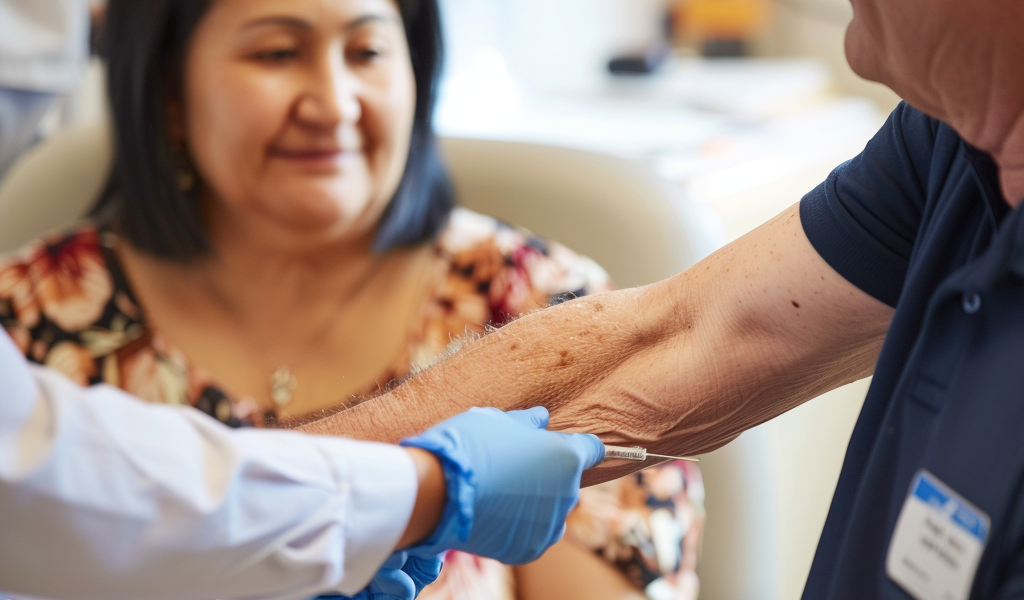Immunotherapy has shown promising results in potentially tripling survival rates for a deadly form of bowel cancer, according to a groundbreaking trial conducted by University College London. The study revealed that pembrolizumab, an immunotherapy drug already used in the NHS for other cancers, has the ability to ‘melt away’ tumors in patients.
Administered through a 30-minute injection into the back of the hand, pembrolizumab has demonstrated the capability to shrink and eliminate ‘bulky high-risk’ bowel cancer, offering hope for improved survival rates and reduced reliance on traditional treatments like surgery and chemotherapy.
The research, presented at the American Society of Clinical Oncology conference in Chicago, involved 32 patients with a specific subtype of bowel cancer known as MMR deficient/MSI-high. The findings suggest a potential shift towards more effective and less invasive treatment options for this aggressive form of cancer.





